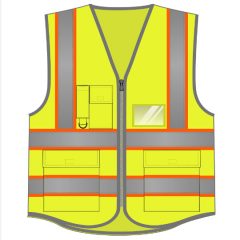The competition is forcing many delivery companies are betting on an increasingly common formula, in order to reduce costs. It is about looking for self-employed workers, who work with their own vehicles for these companies. Now a study warns of the risks that this practice is bringing for road safety.
University College London (UCL), which conducted the research, found that 63% of self-employed drivers do not receive road safety training on how to minimize risk. In addition, 65% do not receive even the most basic security equipment, such as a safety vest (70% buy their own) and reflective tapes. The study also surveyed taxi drivers and found a very similar situation.
Up to 42% of drivers said their vehicle had been damaged as a result of a collision while working, and 10% more reported that someone had been injured. Only 25% of courier drivers claimed that their company cared about their safety while they worked.
Heather Ward of the UCL Transportation Studies Center said: “Our findings highlight that the increase of these contracts in transport companies could increase the risk factors that affect the health and safety of workers.” Among his concerns, he stresses that as there are more workers in these conditions and competition increases. They increase the number of hours they need to work and the distances they must travel to obtain a stable income.
Fatigue, especially among parcel couriers, due to overwork and the pressure of delivery time leads to frequent mistakes and collisions. “We know it’s a problem, but we do not know exactly how long it is, since not all companies have an obligation to report on the number of self-employed workers,” Ward said.
The report makes a series of recommendations to companies that use self-employed drivers:
Pay messengers for blocks of time, instead of delivered packages. In doing so, they must take into account the time necessary to travel safely within the speed limits, taking into account that they must perform administrative functions, such as scanning codes and signing the receiver of the package.
Do not allow mobile phones to cause distractions. Most workers currently receive orders through a smart phone application.
The Society for the Prevention of Accidents to ensure that the conclusions of the study of UCL are worrying, considering the rise of this type of work. It should be added that in the United Kingdom (as in Spain). One third fatal accident involves someone who was at work at that time.
Companies of this type should have programs to minimize risks to road safety (drivers and other road users should wear safety clothing), which carry their business, without a doubt. And maybe we should all have more understanding when we receive an order that we have made online with a couple of hours late. That would also help.
